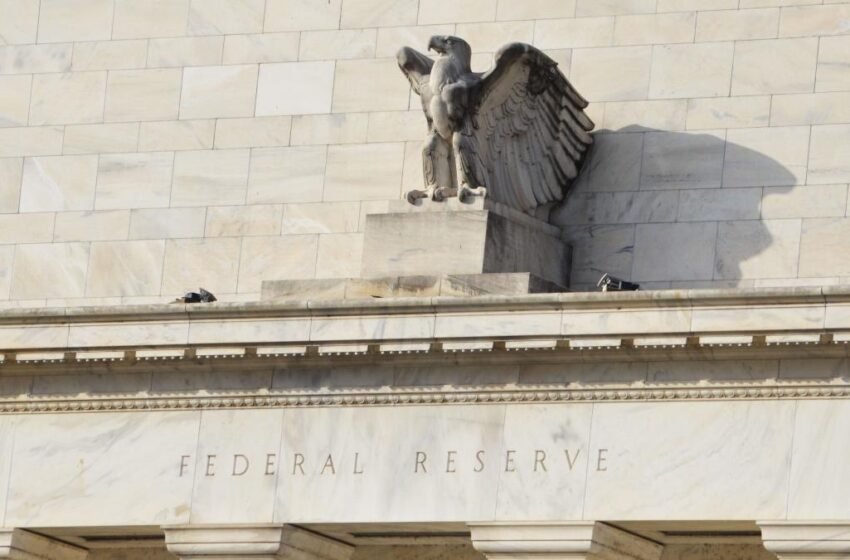Central Bank of Brazil to Advance Institutional VASP Regulation by
Fed Inspector Insights on Crypto And Nepotism For Silvergate Bank’s Downfall
(Originally posted on : Crypto News – iGaming.org )
According to a study by United States Federal Reserve inspectors, Silvergate Bank, previously a crypto-friendly institution, met its fate this year as a result of a strong reliance on hazardous crypto deposits and a culture of nepotism that led to inefficient management.
The Federal Reserve Board’s Office of Inspector General recently released an executive summary of its inquiry into the bank’s demise, attributing Silvergate Bank’s demise to its 2013 strategic shift that put an emphasis on “customers engaged in crypto activities.”
New players only. Exclusive Welcome Bonus of 177% + 77 Free Spins
The report stated, “Silvergate’s concentration in crypto industry deposit customers, rapid growth, and multilayered funding risks led to the bank’s voluntary liquidation.”
With deposits soaring from $1 billion in 2017 to $16 billion in 2021, Silvergate Bank has evolved from a relatively inconspicuous organization in the early 2010s into the preferred bank for crypto customers.
Over-Reliance on Crypto Deposits
The majority of Silvergate’s client deposits became uninsured and interest-free during this period of fast growth, thus transforming the bank into a lender to a single sector. The bank should have submitted a fresh application to the Federal Reserve if it had complied with current banking laws. Government regulators did not, however, put pressure on the bank to implement new risk management practices.
New players only. Exclusive Welcome Bonus of 177% + 77 Free Spins
The study condemned the absence of “stronger, earlier, and more decisive supervisory action” to address these problems, despite the fact that several government supervisors had voiced concerns about the bank’s operations.
Silvergate Bank’s issues went beyond its cryptocurrency transactions. The bank’s senior management was found to have a culture of nepotism, which contributed to a weak corporate structure and a failure to handle the dangers brought on by its fast development.
The report concluded, “Silvergate’s board of directors and senior management were ineffective, and the bank’s corporate governance and risk management capabilities did not keep pace with the bank’s rapid growth, increasing complexity and evolving risk profile.”
Since Silvergate Bank chose voluntary liquidation in March 2023, it is not considered to have failed. As a result, the government did not need to step in to enforce the depositors’ restitution.







 Bitcoin
Bitcoin  Ethereum
Ethereum  Tether
Tether  XRP
XRP  USDC
USDC  Solana
Solana  TRON
TRON  Dogecoin
Dogecoin  Lido Staked Ether
Lido Staked Ether  Figure Heloc
Figure Heloc  Bitcoin Cash
Bitcoin Cash  WhiteBIT Coin
WhiteBIT Coin  USDS
USDS  Cardano
Cardano  LEO Token
LEO Token  Wrapped stETH
Wrapped stETH  Hyperliquid
Hyperliquid  Ethena USDe
Ethena USDe  Wrapped Bitcoin
Wrapped Bitcoin  Canton
Canton  Binance Bridged USDT (BNB Smart Chain)
Binance Bridged USDT (BNB Smart Chain)  Chainlink
Chainlink  Monero
Monero  USD1
USD1  Stellar
Stellar  Wrapped eETH
Wrapped eETH  Rain
Rain  Dai
Dai  sUSDS
sUSDS  Hedera
Hedera  PayPal USD
PayPal USD  Zcash
Zcash  Coinbase Wrapped BTC
Coinbase Wrapped BTC  Litecoin
Litecoin  Avalanche
Avalanche  Shiba Inu
Shiba Inu  WETH
WETH  Sui
Sui  Toncoin
Toncoin  World Liberty Financial
World Liberty Financial  USDT0
USDT0  Cronos
Cronos  Tether Gold
Tether Gold  MemeCore
MemeCore  PAX Gold
PAX Gold  Uniswap
Uniswap  Polkadot
Polkadot  BlackRock USD Institutional Digital Liquidity Fund
BlackRock USD Institutional Digital Liquidity Fund  Ethena Staked USDe
Ethena Staked USDe  Mantle
Mantle  Falcon USD
Falcon USD  Aave
Aave  Aster
Aster  Pepe
Pepe  Global Dollar
Global Dollar  Bittensor
Bittensor  OKB
OKB  Circle USYC
Circle USYC  Bitget Token
Bitget Token  Ripple USD
Ripple USD  syrupUSDC
syrupUSDC  HTX DAO
HTX DAO  Pi Network
Pi Network  Sky
Sky  BFUSD
BFUSD  Ethereum Classic
Ethereum Classic  NEAR Protocol
NEAR Protocol  Ondo
Ondo  Superstate Short Duration U.S. Government Securities Fund (USTB)
Superstate Short Duration U.S. Government Securities Fund (USTB)  Gate
Gate  Internet Computer
Internet Computer  POL (ex-MATIC)
POL (ex-MATIC)  Pump.fun
Pump.fun  KuCoin
KuCoin  Cosmos Hub
Cosmos Hub  Worldcoin
Worldcoin  Jupiter Perpetuals Liquidity Provider Token
Jupiter Perpetuals Liquidity Provider Token  Midnight
Midnight  USDtb
USDtb  Jito Staked SOL
Jito Staked SOL  NEXO
NEXO  Ethena
Ethena  Spiko EU T-Bills Money Market Fund
Spiko EU T-Bills Money Market Fund  Binance-Peg WETH
Binance-Peg WETH  Rocket Pool ETH
Rocket Pool ETH  Official Trump
Official Trump  Algorand
Algorand  Binance Bridged USDC (BNB Smart Chain)
Binance Bridged USDC (BNB Smart Chain)  USDD
USDD  Janus Henderson Anemoy AAA CLO Fund
Janus Henderson Anemoy AAA CLO Fund  Wrapped BNB
Wrapped BNB  Render
Render  Function FBTC
Function FBTC